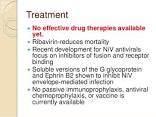HEALTH MINISTRY UPDATE ON"NIPAH VIRUS" AS SUSPECTED IN BIHAR & OTHER STATES TOO
prof .DRRAM,HIV /AIDS,HEPATITIS ,SEX DISEASES & WEAKNESS expert,New Delhi,India, profdrram@gmail.com,+917838059592,+919832025033,ON WHATSAPP
No virus has been detected on bats found the house of family who lost 03 lives in kohzikode in Kerala as reported by Virology Institutute in Pune .
Health Ministry issues advisory on Nipah virus
 1.Avoid consuming raw date palm sap or toddy, half-eaten fruits from the ground and refrain from entering into abandoned wells and eat only washed fruits.
1.Avoid consuming raw date palm sap or toddy, half-eaten fruits from the ground and refrain from entering into abandoned wells and eat only washed fruits.
2.Handling of bodies of those who died due to the disease should be done in accordance with the government advisory and that during this emotional moment traditional rituals and practices may need to be modified to prevent the exposure of family members to the disease.
3.Nipah virus which commonly affects animals such as bats, pigs, dogs, horses, etc. can spread from animals to humans and can sometimes cause serious illness among humans.
4.Spread of Nipah virus to humans may occur after close contact with other Nipah infected people, infected bats, or infected pigs. Bat secretions laden with virus can infect people during fruit tree climbing, eating/handling contaminated fallen fruits or consuming raw date palm sap/juice or toddy
5.Human-to-human infection can occur from close contact with persons affected with Nipah at home while providing care or close contact and in hospital setting if appropriate personal protective equipments are not used
6.People who are exposed to areas inhabited by fruit bats/ articles contaminated by secretions such as unused wells, fruit orchards, etc. are likely to be at higher risk of infections.
7.Persons with direct contact with sick pigs or their contaminated tissues, persons in close contact with a Nipah virus affected deceased during burial or cremation rituals or health care workers having direct contact with probable or confrmed cases without using standard precautionary measures are also at a high risk of developing the infection.
Advisory for healthcare personnel
1. Wash hands thoroughly with soap and water for 20 seconds after contact with a sick patient, practice precautions for infection control while handling Nipah cases (suspected/ confirmed), limiting use of injections and sharp objects.
2. For aerosol generating procedures, personal protective equipment such as individual gowns (impermeable), gloves, masks and goggles or face shields and shoe cover and the procedure should be performed in airborne isolation room.
3. All non-dedicated, non-disposable medical equipment used for patient care should be cleaned and disinfected as per manufacturers instructions and hospital policies.
4. If the use of sharp objects cannot be avoided, ensure that precautions are observed like never replace the cap on a used needle, never direct the point of a used needle towards any part of the body, do not remove used needles from disposable syringes by hand, and do not bend, break or otherwise manipulate used needles by hand, never re-use syringes or needles, dispose of syringes, needles, scalpel blades and other sharp objects in appropriate, puncture-resistant containers.
5. Ensure that containers for sharps objects are placed as close as possible to the immediate area where the objects are being used (point of use) to limit the distance between use and disposal, and ensure the containers remain upright at all times.
- Kidney stones universally present hazard in north india,dillution by water prevent it
- Steroid and placebo effect equally for mild persisting asthma with low sputum eosinophils
- Government wants to fix public healthcare staff shortages with ayush docs: will it work?
- Plea in hc for payment of salaries of edmc, north mcd teachers and doctors
- 7 indian pharma companies named in us lawsuit over inflating generic drug prices
- Woman in up dies after explosion in her mouth during treatment,what is diagnosis?
- Woman in up dies after explosion in her mouth during treatment,what is diagnosis?
- Woman in up dies after explosion in her mouth during treatment,what is diagnosis?
- Air pollution ! mothers organising rally in london,anaesthetist choosing gas,will india follow?
- Cardiac arrest is always not sudden as understood -a study

 Comments (
Comments ( Category (
Category ( Views (
Views (